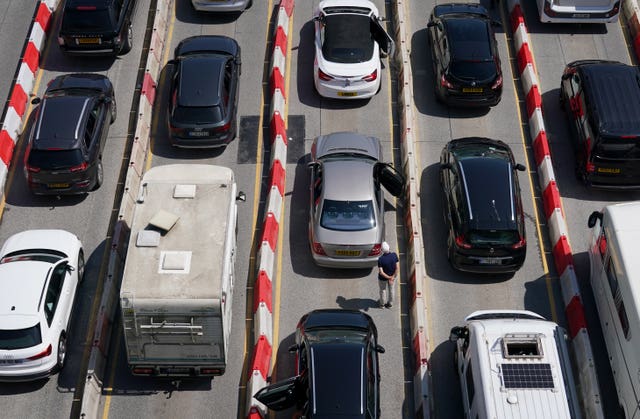New EU border scheme to have ‘six-month soft launch’, MPs told
The Entry-Exit System is expected to be introduced on October 6.

An incoming EU border scheme expected to cause delays at the Port of Dover will have a “six-month soft launch”, MPs were told.
Transport minister Guy Opperman said this will enable a “greater freedom of passage of vehicles” if queues build due to the Entry-Exit System (EES), which is expected to be introduced on October 6.
EES will involve travellers from non-EU countries such as the UK having their fingerprints scanned and a photograph taken to register them on a database the first time they enter a member state.
There are concerns this will cause long queues for ferry traffic sailing from Dover as French border checks are carried out before people embark on cross-Channel journeys.
Mr Opperman told the Commons’ European Scrutiny Committee: “We certainly have a six-month period where the implementation of this is effectively by way of a soft launch.”
He went on: “If one got to a situation where there were a certain amount of queues or delays, then the provisions of the precautionary flexibility measures allow for much greater freedom of passage of vehicles, coaches, HGVs and cars.
“That takes care of so much of the queuing, so many of the complications.”
Home Office minister Tom Pursglove told the committee the Government does not expect the EU to complete the development of an EES app before the scheme is launched.
He said: “My clear understanding is that the app will not be available at the point at which this, we anticipate, goes live in October.

“We would expect this to follow on accordingly.
“It is an area that we are consistently raising both at official level and ministerial level as something that we feel very strongly ought to be put in place at the first possible juncture.
“There are huge advantages around trying to be able to do as much of this processing upstream as possible.”
He added: “We will continue to push on this.
“My understanding is that there is a recognition on the EU side and on the individual member state side that this is something that will really help to mitigate some of these challenges.
“And again, there is a determination to try and deliver that app-based solution as quickly as possible.”





